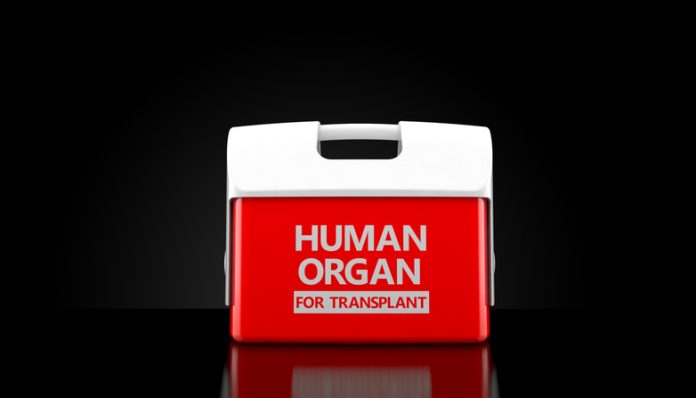A Michigan state judge halted the harvesting of organs from a patient declared “brain dead,” in a case that highlights the shortcomings of organ donation cards and informed consent.
The family of 30-year-old Jaszmine Philips went to court to stop Gift of Life Michigan, the organ procurement agency working with Trinity Health in Muskegon, Michigan from harvesting her organs. According to news reports, Philips suffered from type-1 diabetes and showed no brain activity when she was admitted to the hospital. Philips’ driver’s license indicated she was an organ donor, but her family said she reversed her decision and indicated that multiple times.
Organ donors must be kept alive for hospitals to remove vital organs, such as the heart, lungs, liver, and both kidneys to give to someone else.
“Most people do not understand that an organ donor registration is legally binding and irrevocable after the donor’s death,” said Heidi Klessig, M.D., co-founder of respectforhumanlife.org. “Family members, guardians, and health care surrogates are being left helpless.”
Court Intervenes
The family requested a temporary restraining order against the organ procurement. Gift of Life argued the Revised Uniform Anatomical Gift Law states that only a donor can revoke a desire to no longer donate organs and that the revocation must be clear and objective.
Muskegon County Probate Judge Kenneth Hoopes sided with the family, and Philips died on February 25.
“Organ procurement organizations are becoming even more aggressive and are suing families for possession of their loved ones’ organs,” said Klessig. “Jaszmine Philips’ story is like many others: people are not being given the information they need to give fully informed consent when signing a donor card, and it’s even worse when you consider that many of these decisions are being made by minors, sixteen-year-olds who are getting their first driver’s license.”
Ohio Family’s Request Denied
In 2013, in Ohio, in a case similar to Philips, the family was unable to stop a forced organ donation. According to the Columbus Dispatch, Ohio law prohibits anyone other than the donor from revoking a donation decision.
“It is extremely unjust that people are being asked to make what may be the most important medical decision of their lives at the DMV (Department of Motor Vehicles) while being denied information about the medical and legal facts involved,” said Klessig.
Driver’s licenses are not the only place where people are asked to decide on being an organ donor. Michigan Gov. Gretchen Whitmer signed legislation in 2023 allowing state taxpayers to check a box on their tax return. Drivers’ licenses, however, are the most common recruitment tool for live organ donation, and state websites like the one in Michigan give little to no information on the procurement process for someone declared “brain dead.”
Dignity of Dying Naturally
Right to Life of Michigan (RLM) has not taken a position on someone’s “autonomous choice to donate their organs,” says Genevieve Marnon, the organization’s legislative director.
“But RLM absolutely supports and defends the right of any person to live out their natural life and die a natural death free of any form of hastened death,” said Marnon. “Michigan’s Determination of Death Act, which was passed in 1992, was an attempt to provide patient protections from individual health care providers’ or facilities’ differing criteria for determining brain death. Unfortunately, brain death determinations have led to situations whereby the families have gone to court to prevent the withdrawing of life-sustaining treatment for their loved ones.”
Marnon says there have been cases in Michigan where families seeking to keep their loved ones on life support ended up in court and lost.
“Though organ donation can save lives, it is unjust to sacrifice the life of one patient to save another,” said Marnon. “All persons deserve proper time for their conditions to be monitored and, if recovery is not possible, the dignity of dying a natural death and then having their organs donated if that was their desire or the desire of their patient advocate/family.”
‘Brain Death Fallacy’
Klessig, a retired anesthesiologist, now devotes her time to informing patients about ‘brain death,’ and published a book on the subject, titled The Brain Death Fallacy.
“‘Brain dead’ patients show every sign of life: their hearts beat, their cellular respiration continues, they digest food and excrete waste, they heal wounds, they can even deliver healthy babies,” said Klessig.
“Patients may be very ill, and their prognosis may be death, but it is wrong to treat them as dead and plunder them for their organs while they are still sick and helpless,” said Klessig. “Doctors, scientists, scholars, and philosophers have been vigorously debating the veracity of ‘brain death’ for the last 60 years, but the public has been kept in the dark and fed propagandistic slogans such as ‘Give the gift of life.’”
Organ transplantation is a growing industry. The consulting firm Milliman says the average billed charge for a heart transplant, in 2020, was $1,664,800, for lung transplants $1,295,900, and for transplants of intestinal organs $1,240,700.
AnneMarie Schieber (amschieber@heartland.org) is the managing editor of Health Care News.




















